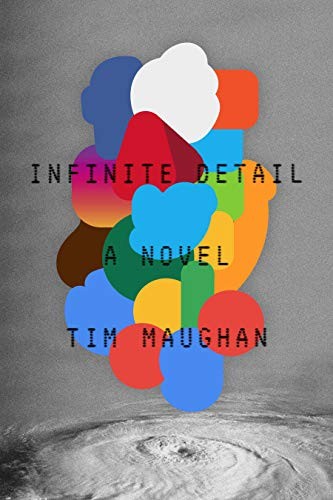sol2070 reviewed Infinite Detail by Tim Maughan
The end of the internet and the world
5 stars
( em português → sol2070.in/2025/01/livro-infinite-detail-fim-da-internet/ )
“The internet was so enshittified by big tech that it would be better to blow it all up,” someone might think in moments of the angriest frustration. What would a world be like in which the internet is destroyed because it benefits megacorporations far more than people? This is what happens in the (almost) contemporary cyberpunk novel “Infinite Detail” (2019, 384 pgs), by Tim Maughan.
I wish I'd read it sooner. It's a captivating thriller starring a countercultural collective that manages to cancel the internet in a neighborhood in Bristol, England, and replace it with a truly decentralized and free mesh network. The aim was to create an area free from techno-surveillance and big tech domination.
In this not-too-distant future, AR glasses have replaced smartphones, multiplying the level of technological dependence, surveillance and disguised domination. The revolt of people and groups who notice this is also growing, leading a group, supposedly radicalized hackers, to release a digital weapon of unprecedented destructive power, created by the military for controlled application in cyber-wars, which permanently disables everything online, even physically, if possible.
The internet implodes, as does everything that depends on it to function. The unforeseen scale of the collateral effects includes the end of telecommunications, financial markets, banks, supply logistics, transportation, etc. After the chaos that ensues, there is even less left. It's the end of civilization as we know it. The military tries to re-establish control with rifles and tanks, creating permanent civil wars with local gangs and the rest of the population, which self-organizes and occupies in order to survive.
The story alternates between before and after this technological apocalypse.
The technical basis of the scenario is quite feasible — the author often writes about technology and culture for various publications. However, the idea that everyone will wear AR glasses is more dubious today than it might have seemed in 2019, when the book was published. Of course, this doesn't compromise the fiction, after all it’s fiction. And of the highest quality, dealing with the oppression of late technocapitalism, technological dependence, resistance, do-it-yourself self-organization, and the unintended consequences of massively disruptive actions.
My favorite author of contemporary cyberpunk stories was Cory Doctorow. Tim Maughan is stiff competition. “Infinite Detail” has a more fluid and literary style, perhaps, in which the contextual information blends perfectly into the narrative, dispensing with didactic infodumps — sometimes necessary in stories with a heavier technical context.
I already want to read the other book in this same universe: “Ghost Hardware” (2020).

